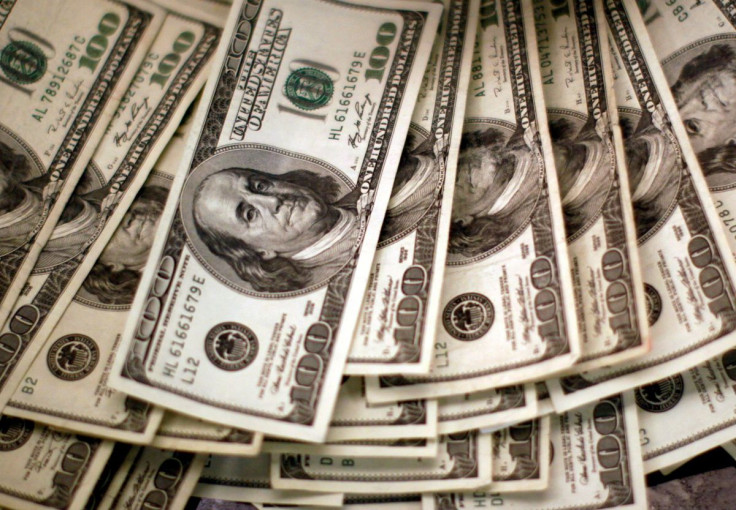The Good, The Bad And The Ugly Side Of The Strong Dollar
A strong U.S. dollar, driven by rising interest rates at home and growing uncertainty abroad, has three sides: the good, the bad and the ugly.
The good side of the strong dollar is about easing inflationary pressures by lowering the cost of imported goods, something the U.S. economy desperately needs these days.
"When the dollar is strong, it gains more purchasing power," Kunal Sawhney, CEO of Kalkine Group, told International Business Times. "U.S. consumers can buy products for less that are manufactured outside."
A strong dollar eases inflation through another channel by making American products more expensive to foreign consumers and lowering exports.
In addition, a strong dollar attracts foreign capital to buy U.S. assets like U.S. treasuries, helping ease the rise in long-term interest rates. That's something the U.S. needs these days, too, as the Fed takes liquidity out of the U.S. economy.
Also, a strong dollar lowers the cost of traveling overseas, something Americans crave about as the pandemic restrictions are easing.
"For U.S. travelers headed abroad this summer, it means that the dollar's strength will make the price of goods and services significantly cheaper than they were last year," Dan North, senior economist at global trade credit insurer Allianz Trade, told IBT. "In fact, U.S. travelers may sense they are getting a bargain on many items."
The bad side of the dollar is about undermining the profitability of the U.S. corporations with a significant overseas presence, as revenues from overseas markets translate into fewer dollars. For example, last week, Microsoft warned investors of a shortfall in its earnings due to the strong dollar.
Also, the bad side of the dollar is lower employment.
"When the dollar rises, exports begin to decline, and it can have a ripple effect on employment," Sawhney added. "With low exports, jobs also begin to shrink in the U.S. So, a strong dollar is not always good, as it may result in low employment."
And the ugly side? The strong dollar's impact on the dollar-denominated emerging market debt could lead to sovereign debt defaults.
"A strong dollar adversely affects the emerging markets or economies," Sawhney explained. "Emerging markets predominantly rely on foreign investments and capital. When the dollar gains, repaying debts turns into an uphill task. The chances of default rise manifold. The emerging markets come under immense pressure to hike their rates to keep up with a strong dollar."
A strong dollar can fuel an emerging market currency crisis, as was the case with the Mexican and the Asian currency crises in the 1990s. Currency crises are usually followed by credit crises, which could become contagious, an ugly scenario for investors in risky assets worldwide.
Still, the strength of the dollar may be temporary. Its gains could be tamed by the end of the Russia-Ukraine war, and it could reverse course once the other central banks follow the Fed's lead and take liquidity out from their economies.
"Perhaps the country that has printed the least amount of money will have a strong currency," Holmes Osborne, principal at Osborne Global Investors, said.

© Copyright IBTimes 2024. All rights reserved.






















